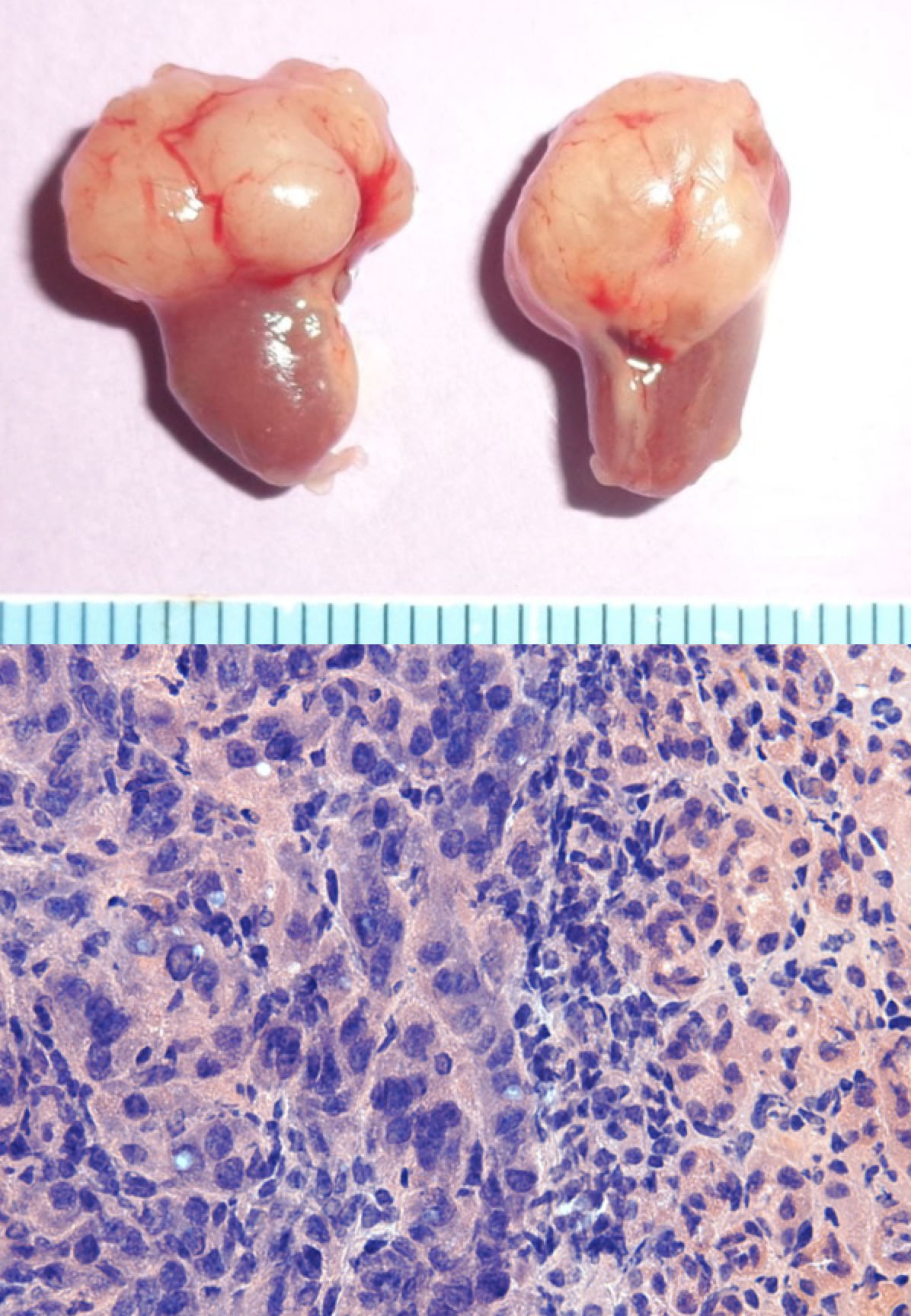PCP, cell competition and cancer
With the advent of genome wide analyses, numerous reports have suggested links between PCP genes and various cancers. This idea is supported by studies showing that in developmental contexts, PCP contributes to events including coordinated migration of groups of cells, much like the way cancers invade healthy tissues. Nonetheless, it has been difficult to derive a coherent model for the role of PCP in cancer development and progression.
To address these issues, our lab is taking several approaches. First, using Drosophila as a model system,we have employed several genetically defined cancer models in which to study the contributions of PCP genes to initiation and growth of cancers, and to their ability to metastasie and invade neighboring tissues.

Using a transplant assay, we are able to study the contributions of PCP components to the invasion of tumors into surrounding tissue. We observe the activation of MMP1 and elevated actin expression indicitave of invasive tumor behavior.

In a very surprising finding, we have discovered that the PCP component Flamingo is essential for tumors to compete with nearby healthy tissue to enable tumor growth. fmi mutant tumors occupying the whole tissue grow normally, but when tumors are initiated in the context of healthy surrounding tissues, they require Fmi to grow normally. This is an example of a phenomenon known as cell competition. Remarkably, Fmi appears to also be important for cell competition in non-tumor models of cell competition, in which some cells are given a fitness advantage but retain their ability to contribute to normal tissue growth. We are actively studying the role of Fmi in cell competition.

To complement these studies, we are studying the contribution of PCP components to cancer in a mouse model. In one of our mutant mouse colonies, we have discovered an extremely high incidence of renal tumors, as well as a lesser incidence of other tumor types. We are investigating the pathways by which these tumors are driven.

People:
Bomsoo Cho
Joy Wan
Koshi Kunimoto